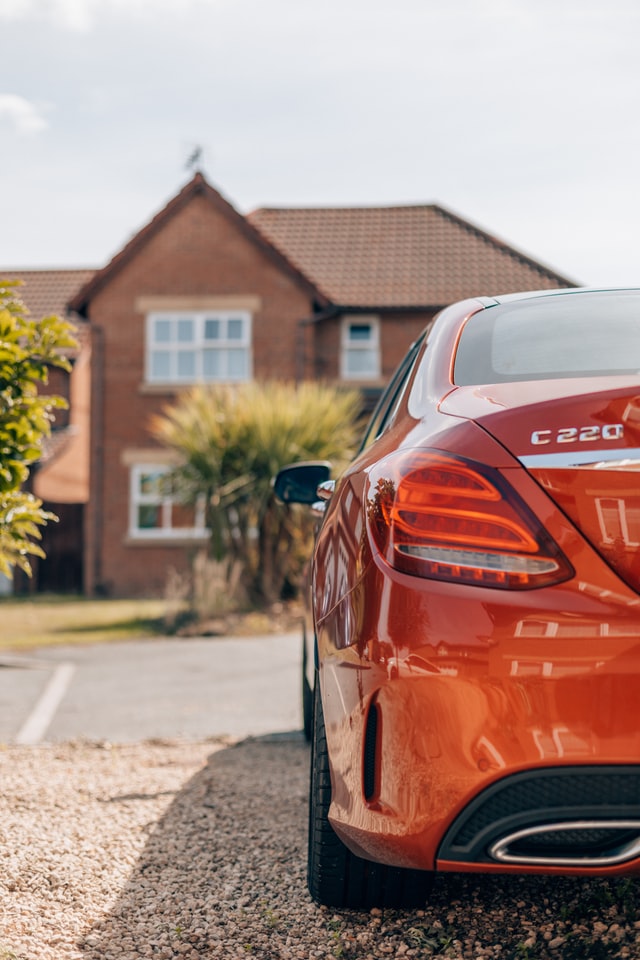A grey surface for a driveway is not for everyone. This is where resin driveways can be a refreshing change which transforms the looks of one’s property. If you’re looking for a cheaper driveway option than concrete or tarmac driveways you should look into resin driveways. These materials are more affordable than concrete, are permeable, and don’t encourage weed growth. You can read on to learn why resin driveways are a good choice for your home. Although often done wrong with the right care in the right hands it can be an eye catching addition to any home. If you’re interested in making your driveway last a long time, you can learn about how to install one yourself.

Resin Driveways are Cheaper than Alternatives
The cost of resin driveways is less expensive than other paving alternatives. Unlike stone and gravel, which move around on a driveway, resin bonded aggregate is a smooth, even base that does not change with time. The resin-bonded material is cheaper than alternative paving materials and can be installed by DIY enthusiasts. However, it is important to remember that resin driveway prices can vary considerably depending on size and other factors.
They are Easy to Install
Resin Driveways are not difficult to install. The first step is to prepare the driveway for resin. Resin driveways are easy to install because they have a permeable surface that allows water to be absorbed into the concrete without draining off the side. Installing a resin driveway requires drilling into a macadam surface to create a permeable surface. Afterward, the resin driveway is laid.
They are Easy To Maintain
Resin Driveways are generally easy to maintain, but it is important to take the appropriate precautions when using one. Resin driveways should be protected from hard objects such as car parts, garden machinery, and plant pots and seating. They should also be protected from gravel, which can get trapped between tyre treads and leave marks. If you are planning on parking a large vehicle on the driveway, be sure to remove the gravel from the area before installing the resin.
When you’re finished with your driveway, you can easily remove it with a pressure washer. Resin driveways are easy to clean, thanks to their permeable sub-base. Snow and ice will pass right through the surface. You can add salt or sand for traction on icy days, but you should remove it once the cold weather has passed. Chewing gum on a resin driveway is a tough job, but you can use a pressure washer to get it off.
They are Permeable
Unlike traditional block paving, resin driveways are permeable. This means that they allow water to pass through, while also minimizing weed and mould growth. The permeable resin layer bonds with the original surface, which prevents undergrowth from developing in the layer below. Resin driveways are also easy to clean, and are resistant to petrol and oil spills and UV damage. After installation, a permeable resin driveway will last for many years.
They Resist Weed Growth
A resin driveway is a great option for those who want a driveway that won’t allow weeds to grow. A resin-bound surface doesn’t allow weeds to grow through the surface or sub-base. However, small patches of weed growth can occur. These weeds can form if the wind blows tiny seedlings onto the surface. These small seeds then germinate and grow into weeds.
They Minimise Puddles
The permeability of Resin Driveways ensures that water will permeate through the surface and reduce the likelihood of puddles. This can prevent flash flooding and is also beneficial for the environment. Sustainable Urban Drainage Systems (SUDS) are an introduction by the Environment Agency for managing water quality and flood risk. Concrete and asphalt can trap heat and create puddles but resin lets the surface beneath breathe, resulting in a cooler surface temperature. Unlike concrete and asphalt, these driveways do not need planning permission, as resin bound driveways are fully compliant with government regulations.
They Offer a Smooth Finish
Resin driveways are made from high-quality materials that resist fading and discolouration. They are also UV-stabilized to resist the effects of sunlight. Resins have a smooth, flexible surface that is just as aesthetically pleasing as loose gravel and are more durable than concrete or tarmac. Aside from looking attractive, resin driveways are also safe and suitable for wheelchairs. They can withstand high foot traffic and require less maintenance than concrete or tarmac.

Rose Woofter writes about sustainable luxury and the growing trend of eco-friendly, yet lavish, travel experiences, with a focus on heritage railway carriages.


